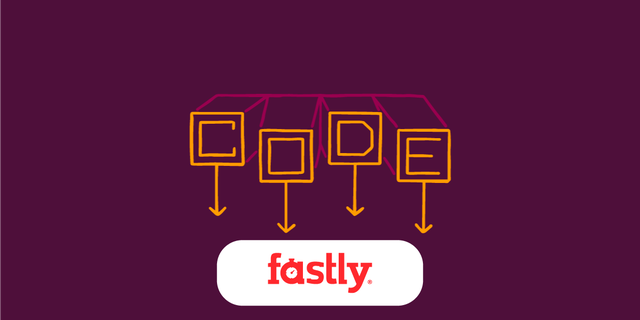Performance
Page 1 of 9
-
Lightweight Latency Measurement with Server-Timing
Leon Brocard
Measure end-to-end request latency with Server-Timing. See how origin, Fastly Compute, and CDN delivery timings appear in browser dev tools.
CDN & Delivery+ 4 more
-
When Moments Can’t Be Rehearsed, Preparation Is the Only Advantage That Scales
John Agger
When everything is live and unforgiving, preparation is the only advantage. Learn how Fastly and Jerry Rice approach peak performance under pressure.
CDN & Delivery+ 3 more
-
4 Recommendations to Maximize Savings and Performance with Fastly’s CDN
Guillermo Guardián
Boost website speed and save on egress costs with Fastly's CDN. Learn to maximize cache efficiency, reduce origin traffic, and unlock 189% ROI.
CDN & Delivery+ 2 more
-
Essential Checklist: Get Ready for Peak Traffic Season with Fastly
Guillermo Guardián
Stop holiday traffic outages! Learn best practices to optimize your website for peak performance, security, and sales this Black Friday season.
CDN & Delivery+ 2 more
-
An Indispensable Pillar of Resilience - The Human
Brian Haberman
The human operator is the ultimate pillar of resilience. Learn how Fastly empowers engineers to handle novel failures, drive systemic learning, and achieve antifragility.
CDN & Delivery+ 2 more
-
Black Friday is Dead, Long Live Black Friday: Cyber 5 Traffic Insights
Robyn Bean, Alec Olslund
Black Friday isn’t the traffic spike it used to be. Fastly’s data shows holiday demand now stretches across all of November. Here’s what Cyber 5 2025 really looked like.
Security+ 3 more
-
How Fastly and Yottaa Transform Site Performance with Early Hints
Ajay Bharadwaj, Terri Allegretto
Early Hints for Compute is now generally available, dramatically improving website performance and user experience by preloading essential resources.
Compute+ 4 more
-
Resilience by Design: Lessons in Multi-Cloud Readiness
Austin Spires
Stay online when it matters most. Learn how Fastly's multi-cloud and edge strategies protect against outages, keeping your systems fast and reliable.
CDN & Delivery+ 2 more
-
Optimizing Web Performance: Unpacking Fastly’s Intelligent Compression Defaults
Stephen Stierer, Anjan Srinivas
Optimize web performance with Fastly's intelligent compression defaults. Learn how Gzip and Brotli shrink payload sizes, reduce costs, and speed up your site.
CDN & Delivery+ 2 more
-
Building Scalable Waiting Rooms with Fastly Compute
Brock Norvell, Terri Allegretto, + 1 more
Control website traffic and prevent server overload with Fastly Compute waiting rooms. Learn how to build scalable, customizable queues for high-demand events.
Compute+ 4 more
-
Fastest Sites Run on Fastly
Leon Brocard
Make your site 25%+ faster with Fastly’s programmable edge. See why the fastest media sites — from Vox.com to Business Insider — run on Fastly.
Performance+ 2 more
-
Unparalleled Performance: Bring Your C++ Logic to the Edge
Kat Marchán, Sy Brand
Bring your C++ logic to the edge with the Beta Fastly Compute SDK. Achieve unparalleled, near-native performance, low-latency, and enhanced security via WebAssembly (Wasm).
Engineering+ 4 more
-
Deploy for Performance: Fastly’s Principles of Infrastructure Diversity and Soft Control
Brian Haberman
Discover Fastly's core resilience principles: Infrastructure Diversity prevents outages, and Soft Influence optimizes traffic for peak performance.
Performance+ 2 more
-
Rewriting HTML with the Fastly JavaScript SDK
Sy Brand
Boost web performance with Fastly’s JS SDK v3.35.0. Use the new streaming HTML rewriter to customize, cache, and transform pages faster and more efficiently.
Compute+ 4 more
-
Outages, Attacks, and a Need for Resilience
Austin Spires
Cloud outages are a stark reminder of our digital economy's fragility. Learn how Fastly mitigated a major traffic failover and concurrent DDoS attacks with zero disruption.
CDN & Delivery+ 4 more
-
Why the Future of Streaming Lives at the Edge
John Agger, Ashley Hurwitz
The future of streaming lives at the edge. Explore how Fastly reduces latency, boosts performance, and unlocks sustainable content delivery for media companies.
Edge network+ 3 more
-
Optimizing your multi-CDN infrastructure to improve performance
Natalie Griffeth
Learn how a multi-CDN infrastructure can, and should be, optimized for performance. Get tips from Fastly on considerations to evaluate against your current content delivery strategy.
CDN & DeliveryPerformance
-
Fastly’s Pillars of Resilience: Building a More Robust Internet
Brian Haberman
Discover Fastly's Pillars of Resilience: unwavering availability, minimized latency, and disruption resistance for a robust internet experience with our global network.
CDN & Delivery+ 4 more
-
Getting the most out of Vary with Fastly
Andrew Betts
You can use the `Vary` response header in creative ways, including A/B testing and internationalization. At the same time, many people still use `Vary` badly or misunderstand what it does; in this post, we’ll provide an expanded guide, including some of the more exotic ways you can get value out of `Vary` in intermediate caches like Fastly.
Performance -
How to Tame Varnish Memory Usage Safely
Daniel Axtens
How Fastly turned a shelved Varnish idea into 25% fewer memory writes and real system-wide gains.
CDN & Delivery+ 4 more















